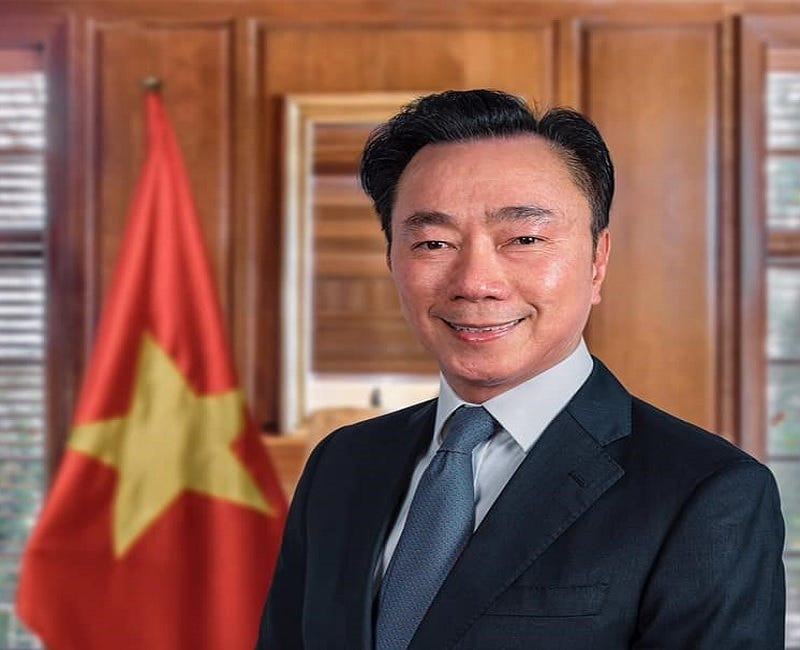Interpreting The Vietnamese Ambassador To India’s Remark About Defense & Nuclear Energy Co-Op
Vietnam already has defense and nuclear technology deals with Russia that were even mentioned in their reaffirmed strategic partnership pact that was agreed to in early December during President Nguyen Xuan Phuc’s visit to Moscow so it raised eyebrows when Ambassador Pham Sanh Chau said on Friday that "Only India can help Vietnam in sensitive areas like defence and nuclear technology for peaceful use.”
Vietnamese Ambassador to India Pham Sanh Chau said during an interactive session on Friday that “Only India can help Vietnam in sensitive areas like defence and nuclear technology for peaceful use.” This remark raised eyebrows since Vietnam already has defense and nuclear technology deals with Russia that were even mentioned in their reaffirmed strategic partnership pact that was agreed to in early December during President Nguyen Xuan Phuc’s visit to Moscow. The purpose of this piece is therefore to clarify what he probably meant by that.
The US-led West’s unprecedented sanctions that were imposed against Russia in response to its ongoing special military operation in Ukraine carry with them the threat of so-called “secondary sanctions”. In the Vietnamese context, amounts to a Damocles’ sword hanging over its strategic partnership with Russia, especially in the defense field. Nevertheless, there’s a clever workaround that can be practiced and which has already been proven to succeed, and that’s purchasing arms that are jointly produced by Russia and India in order to evade the threat of “secondary sanctions”.
This method works as evidenced by Indian Ambassador to the Philippines Shambhu Kumaran confirming last month that his country’s deal with the Philippines for jointly produced BrahMos supersonic cruise missiles won’t be affected by such sanctions because it’s bilateral and doesn’t directly involve Russia. Moscow had to approve the sale but it’s not party to this deal beyond that. The US’ failure to impose sanctions in response suggests that this method of third countries purchasing arms that are jointly produced by Russia and India can function as an effective workaround for the indefinite future.
The same might also be true when it comes to nuclear energy cooperation with Russia, which isn’t yet sanctioned though it can’t be taken for it won’t ever be. Russia and India already jointly cooperate in developing their shared Bangladeshi partner’s Rooppur nuclear power plant so there’s no reason why they can’t expand this working arrangement to include other third countries like Vietnam too. In other words, Russia’s way of evading the US-led West’s illegal sanctions threats is to comprehensively expand the sphere of its joint projects with India in third countries.
Vietnam is the perfect place for them to do so since it practices a policy of principled neutrality towards the Ukrainian Conflict exactly as India does by not publicly condemning Russia or joining the US-led West’s illegal sanctions against it. That’s why Ambassador Chau also said on Friday that “Vietnam and India have chosen the 'middle way' of peace, stability and dialogue, the path of Buddha.” In fact, India’s brave defiance of America’s escalating multidimensional pressure against it to condemn and then sanction Russia has positioned this Great Power as a leader of the Global South.
India aims to jointly assemble a new Non-Aligned Movement (“Neo-NAM”) with Russia for creating a third pole of influence in the present bi-multipolar transitional phase of the global systemic transition towards multipolarity. Vietnam fits perfectly within this emerging network due to its policy of principled neutrality and excellent relations with the Neo-NAM’s dual Russian-Indian leaders. With this in mind, Ambassador Chau’s remark makes a lot of sense since it seems to be hinting at trilateral cooperation through that model in order to evade the US’ illegal “secondary sanctions” threats in the New Cold War.
Should this be an accurate interpretation of that diplomat’s words, then it would signify that Vietnam is positioning itself to the leading multipolar force in ASEAN exactly as India has already done in South Asia and the Global South more broadly. Going forward, observers should pay very close attention to Vietnam’s bilateral ties with India and Russia as well as any potential trilateral projects that it might participate in with them. ASEAN is already one of the cores of the emerging Multipolar World Order so Vietnam’s desire to become its leading multipolar force speaks to its growing global significance.




